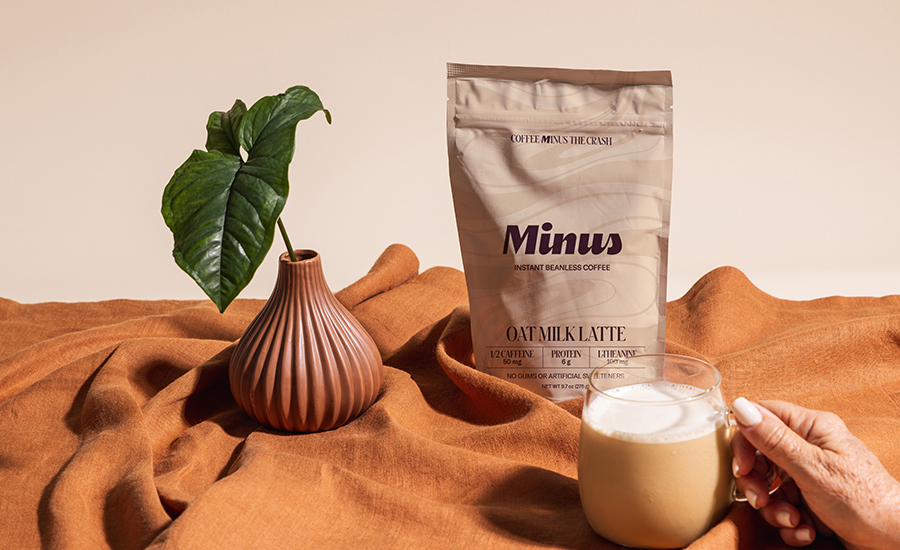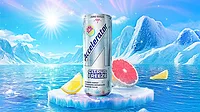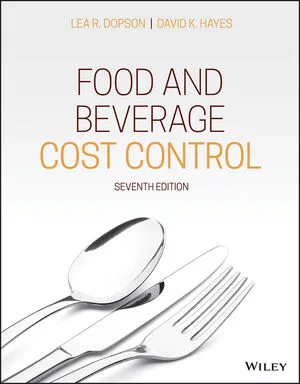Consumer demand prompts beverage innovations that support cognitive health
Mood, focus-enhancing benefits among attributes consumers seek in beverages

Image courtesy of Minus Coffee
Renowned for his 19th-century inventions, including the phonograph and incandescent light bulb, American inventor Thomas A. Edison is quoted for having said, “The chief function of the body is to carry the brain around.”
Today, with more research exploring the brain-body connection — demonstrating how brain health can positively affect physical health — experts note that consumers increasingly are seeking solutions that not only support cognitive health, but also mental and emotional well-being.
“Cognitive support is gaining traction among both younger and older consumers,” says Rafea Naffa, PhD, scientific adviser for research and development at AIDP Inc., City of Industry, Calif.
“In fact, Americans aged 25-34 are as interested in brain health products as are those aged 55-75 (45% in each group), with overall interest across age groups rising between 2020 and 2023,” Naffa continues. “Additionally, consumers of all ages are looking for alternatives to traditional tablets and capsules, driving rapid growth in liquid supplement formats, according to Nutrition Business Journal (NBJ).”
Vaughn DuBow, senior director of product portfolio marketing for health and wellness at ADM, Chicago, pinpoints consumers’ busy lifestyles as driving demand for quick “pick-me-ups” and longer term wellness solutions.
“Convenient, ready-to-drink (RTD) beverage products with targeted support for energy, mental clarity and focus help today’s consumers feel reinvigorated,” he says. “Optimizing sleep and addressing stress through wellness beverages are also in focus for consumers seeking supportive solutions to improve their physical and mental well-being, and in support of healthy aging.
“In fact, 75% of U.S. consumers state they are interested in improving their cognitive health because they want a good quality of life,” DuBow continues, citing “FMCG Gurus – Cognitive Health Trends in USA – Country Report – 2023.” “Bottled water is the top category in which U.S. consumers would like to see claims for improving cognitive health, with juices/smoothies and coffee/tea also in the Top 5 categories. With over half of consumers reporting difficulty sleeping, and feelings of tiredness and stress, consumers demand these types of beverage products for energy during the day while also alleviating stressors.”
Kyle Krause, regional product manager for functional fibers and carbohydrates at BENEO, Parsippany, N.J., notes that today’s consumers also are linking cognitive health to microbiome health.

“BENEO’s prebiotic chicory root fiber has shown mood improvement in a recent study by Jackson et al,” Krause continues. “The study released in October 2023, demonstrated that the intake of the prebiotic dietary fiber oligofructose alone, or in combination with the human milk oligosaccharide 2’-fucosyllactose promotes a significant increase in bifidobacteria in the gut and can result in substantial improvements in mood in healthy adults with mild to moderate feelings of anxiety and depression.”
Meeting the moment
With the rise of functional beverage trends, comes increased demand for cognitive and energy-focused solutions, experts note.
“Cognitive and energy focused products offer quick, convenient solutions to combat fatigue, improve productivity, and manage stress in fast-paced routines,” AIDP’s Naffa says. “Additionally, the rise of multitasking and digital overload has increased the demand for support in maintaining mental and physical performance.”
BENEO’s Krause notes that, aside from busy routines, consumer trends such as weight management are contributing to the demand for cognitive energy solutions.
“A very important trend is the uptick in consumer interest in weight management spurred on by the weight loss results shown by GLP-1. Indeed, lack of energy is a key nutritional concern for GLP-1 users,” Krause says. “With GLP-1 drugs suppressing appetite, it’s important not to lose sight of the value of a high-quality diet.
“Proper nourishment is crucial as lacking nutrient intake can result in reduced physical and cognitive stamina,” he continues. “BENEO’s toolbox, consisting of functional carbohydrates, prebiotic fibers, and plant-based proteins enables manufacturers to bring products to life that meet the specific needs of GLP-1 users, contributing to a proper supply of macronutrients.”
Jennifer Berndt, marketing manager for beverage at Cargill, Minneapolis, notes that consumers’ affinity for natural ingredients is impacting the cognitive energy space.

“The influence of consumers’ ‘natural’ aspirations is evident in the ingredients that brands use to formulate these drinks,” she says. “Consumers are looking for cues that products fit their definition of ‘healthy.’ In the energy drink space, that’s reflected in the use of guarana and green coffee bean extract to provide a plant-sourced caffeinated boost.
“Similarly, artificial sweeteners are falling out of favor, increasingly replaced by advanced stevia sweeteners that live up to consumer label and flavor expectations,” Berndt continues. “Cargill has created a stevia-sweetened orange-flavored energy drink that highlights how brands can bring all these trends together. With 100 mg of caffeine per serving, it provides a light lift to help consumers power through their day, but there’s no added sugars or artificial sweeteners to weigh them down. Best of all, it tastes great, without the flavor challenges so often associated with beverages in this space.”
AIDP’s Naffa points to consumers’ concerns surrounding stress, sleep and mood as driving demand for cognitive solutions.
“Stress, sleep, and mood remain top concerns for adults aged 18-55, according to a Trust Transparency survey,” Naffa says. “Among American Gen Zers dealing with mood and mental well-being challenges like stress, anxiety, insomnia, and hormone-related mood imbalances, 60% use supplements to help. This presents a significant opportunity for beverages targeting Gen Z.
“Many of us start the day with a trusty cup of coffee, relishing its caffeine boost — the most popular nootropic ingredient,” he continues. “However, regularly consuming high levels of caffeine daily can lead to long-term issues such as sleep problems, anxiety, digestive issues, and higher blood pressure, potentially worsening pre-existing hypertension.”
Cognitive and energy focused products offer quick, convenient solutions to combat fatigue, improve productivity, and manage stress in fast-paced routines. Additionally, the rise of multitasking and digital overload has increased the demand for support in maintaining mental and physical performance.
Moreover, Naffa notes that caffeine can enhance the risk of mineral loss — e.g. magnesium, a mineral essential for brain health — because coffee is a diuretic.
“This has sparked a growing demand for innovative ingredients that offer cognitive benefits without the long-term drawbacks of caffeine,” he says.
Exploring ingredients
Given consumer demand for beverages that support cognitive health, experts highlight some ingredient solutions that beverage-makers can utilize to meet consumers’ evolving need states.
“Consumers are calling for a ‘return-to-nature’ through the use of naturally derived ingredients with wellness attributes. These solutions can also be particularly useful in beverage products delivering cognitive health support,” ADM’s DuBow says. “For example, certain botanical extracts provide natural sources of energy, such as our guarana, green tea and yerba mate extracts for natural sources of caffeine.
“Plus, we combine guarana and green tea with carob extract in our WKUP formulation to support functional beverage developments,” he continues. “WKUP performs comparably to caffeine without common concerns like increased heart rate and temporary impact on blood pressure.”
DuBow further notes that consumers associate botanicals like green rooibos to assist with mood, stress and sleep.
“Through our collaboration with the University of Canberra in Australia, we’re examining the effects of green rooibos on everyday stress and feelings of worry,” he says. “For longer-term support, beverage makers can incorporate vitamin C from acerola powder or plant-derived vitamin E like our Novatol. Both vitamins C and E contribute to the protection of cells from oxidative stress.
DuBow also points out that microbiome-supporting solutions are emerging in the cognitive health space.
“Ongoing research into the interconnection of the gut-brain axis is leading to expanded opportunities for biotic incorporation into beverages to address mood, focus, stress, sleep and more,” DuBow says. “With rapidly expanding research in this space, beverage makers should look to resilient biotic formulations, such as postbiotics and spore-forming probiotics, to usher in the next wave of functional beverage innovation with targeted cognitive health support.”
AIDP’s Naffa highlights how Magtein, a branded brain bioavailable and soluble form of magnesium, supports brain health by delivering magnesium to the brain — which can help enhance focus and improve concentration.
“Beverage-makers can utilize Magtein (magnesium l-threonate) to support cognitive health and energy needs,” Naffa says. “Magtein is the only magnesium supplement that has proven to be uniquely effective for brain health due to its ability to cross the blood-brain barrier to enhance magnesium levels in brain neurons without gastrointestinal side effects.
“Magtein enhances magnesium uptake in the brain, supporting cognitive function, mental alertness and sleep quality,” he continues. “Studies show it helps with mood, energy, and productivity, making it ideal for consumers seeking all-day mental clarity and a restful night. Additionally, Magtein is FDA GRAS, Health Canada and EFSA approved.”
BENEO’s Krause points out that BENEO’s Palatinose, a low-glycemic carbohydrate sourced from sugar beet, supports energy and mood due to its slow release of glucose.
Glucose is the main source of fuel for the body and brain, and Palatinose provides it in a sustained and balanced way,” he explains. “Thus, compared to higher glycemic sugars, Palatinose results in a slower and overall lower rise in blood glucose.
“Palatinose can be easily used instead of sugar, gram for gram, as it provides a slow release of energy, leading to a more balanced energy supply for the body without giving up the technical or sensory effects of sugar,” Krause continues. “Moreover, this smart carbohydrate has proven to deliver other health benefits related to increased fat burning as well as the support of weight management. It has also been observed in a study conducted by Young and Benton in 2014 that the carbohydrate energy provided by Palatinose can support memory and enhance mental well-being.”
Forecasting the future
With all the current buzz surrounding cognitive, mental and emotional health, experts anticipate that demand for cognitive and energy formulations will continue to grow in the coming year.
“We anticipate increased interest in cognitive health and energy support across different beverage formats, especially as consumers progressively set goals for maintaining mental acuity and physical activity into later life,” ADM’s DuBow says. “This is prompting overlapping benefits across various functional beverage categories.
“New energy drinks are promoting support for mood and other areas of cognitive health while sports or active nutrition beverage innovations are incorporating ingredients for relaxation alongside recovery,” he continues. “Additional investigation into the gut-brain axis, along with the perceived benefits of botanical and plant extracts, will further refine opportunities for tailored support, propelling new product development in 2025 and beyond.”
BENEO’s Krause predicts that rising weight management trends will have an increased impact on the cognitive energy space.
“We know that the GLP-1 momentum is having a huge impact on the food and beverage industry in general with the need for specific tailored formulations to ensure a sufficient energy supply, “ he says. “As an easy-to-consume application, fortified drinks can be one piece of the puzzle to support consumers conveniently.”
AIDP’s Naffa also foresees increased demand for cognitive energy formulations in the coming year.
“As stress, digital overload, and multitasking become more prevalent, consumers are increasingly seeking products that enhance mood, focus, mental clarity, and energy,” he says. “Gen Z and Gen X, both tech-savvy and heavy users of technology, are especially focused on staying at the top of their cognitive health and maintaining sharp focus in a fast-paced digital world. They are keen to understand what they consume, driving interest in scientifically supported, functional nootropics and energy ingredients.
“Additionally, as Generation Alpha begins to enter the market soon, the demand for products supporting cognitive health will likely expand even further,” Naffa continues. “With younger generations moving away from traditional pills, demand for innovative delivery forms like beverages, is set to increase”
Balancing efficacy, palatability
With continued growth in the cognitive energy space, experts highlight how formulators can overcome various challenges to create innovative beverages that meet consumer demand.
“Consumers gravitate to these beverages for their functional benefits, but to earn repeat purchase, the product needs to offer a great sensory experience, too,” says Jennifer Berndt, marketing manager at Cargill. “That’s why taste and visual appeal are critical in these products. Color, characterizing flavors, sweetener systems and likely flavor modifiers all must work together to create a pleasing sensory experience.”
Given the above, Berndt notes that acidified energy drinks are especially challenging to formulate, as they often contain caffeine, B vitamins and other ingredients with difficult flavor profiles.
“Sweetener solutions must balance out the acid, while also covering up the bitterness associated with energy-focused ingredients,” she explains. “To compensate, brands often turn to a class of ingredients known as flavor maskers. The key is finding masking solutions that provide a neutral profile and work in harmony with — or even enhance — the finished product’s planned flavor profile. Our most advanced sweetening system, EverSweet stevia sweetener + ClearFlo natural flavor, does just that — supporting reduced- or no-sugar-added formulations, while also offering flavor-modifying properties.
“Typically, when we use flavor modifiers to manage off-notes, we’re also forced to bump up expensive characterizing flavor loads because everything gets muted,” Berndt continues. “That’s not the case with EverSweet + ClearFlo; its unique mode of action helps manage off-flavors from other ingredients used in formulation, including bitterness from caffeine or vitamins. At the same time, it enhances many characterizing flavor profiles, including light, fruity notes.”
Kyle Krause, regional product manager for functional fibers and carbohydrates at BENEO, notes that, with more consumers looking for clean-label products — rejecting products that contain artificial additives and “fake” energy sources — BENEO’s all-natural chicory root fibers are scientifically proven.
“BENEO’s all-natural, non-GMO chicory root fibers, are recognized by official bodies in the EU and the U.S. and are the only proven plant-based prebiotics,” he says. “Tying in with the demand for solutions as natural as possible, they are also available as organic versions. The scientific database for BENEO’s prebiotic fibers is the strongest in the food industry. Palatinose is also supported by numerous scientific studies.”
Rafea Naffa, PhD, scientific adviser for research and development at AIDP Inc., notes that while critical factors include ingredient stability and maintaining taste and texture when formulating, AIDP’s cognitive health ingredients are supported by robust clinical research — ensuring efficacy and safety.
Naffa also notes the importance of regulatory compliance and meeting safety standards when formulating, particularly for novel or potent ingredients.
“Balancing efficacy with palatability and managing potential side effects like overstimulation or bitterness are critical,” Naffa says. “Additionally, clear consumer education and labeling are essential for transparency and trust.”
Looking for a reprint of this article?
From high-res PDFs to custom plaques, order your copy today!









